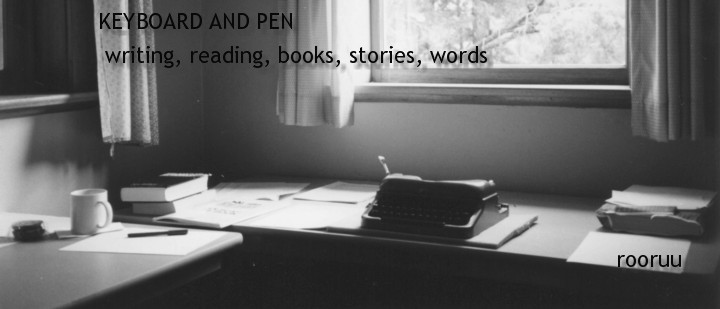1 Harry Potter series - J.K. Rowling
2 Twilight - Stephenie Meyer
3 Pride and Prejudice - Jane Austen
4 The Obernewtyn Chronicles - Isobelle Carmody
5 My Sister's Keeper - Jodi Picoult
6 To Kill A Mockingbird - Harper Lee
7 The Book Thief - Markus Zusak
8 Breath - Tim Winton
9 The Kite Runner - Khaled Hosseini
10 Break No Bones - Kathy Reichs
11 The Power Of One - Bryce Courtenay
12 Fight Club - Chuck Palahniuk
13 Magician - Raymond E. Feist
14 The Bronze Horseman - Paullina Simons
15 Mao's Last Dancer - Li Cunxin
16 Memoirs Of A Geisha - Arthur Golden
17 The Lovely Bones - Alice Sebold
18 Cross - James Patterson
19 Persuasion - Jane Austen
20 Jane Eyre - Charlotte Bronte
21 The Time Traveler's Wife - Audrey Niffenegger
22 The Secret - Rhonda Byrne
23 Marley and Me - John Grogan
24 Antony and Cleopatra - Colleen McCullough
25 April Fools Day - Bryce Courtney
26 North & South - Elizabeth Gaskell
27 In My Skin - Kate Holden
28 Wuthering Heights - Emily Bronte
29 A Thousand Splendid Suns - Khaled Hosseini
30 The Other Boleyn Girl - Phillipa Gregory
31 Nineteen Minutes - Jodi Picoult
32 Atonement - Ian McEwan
33 Shantaram Gregory - David Roberts
34 Pillars Of The Earth - Ken Follett
35 The Pact - Jodi Picoult
36 Ice Station - Matthew Reilly
37 Cloudstreet - Tim Winton
38 Jessica - Bryce Courtenay
39 A New Earth - Eckhart Tolle
40 The Princess Bride - William Goldman
41 Running With Scissors - Augusten Burroughs
42 Anybody Out There? - Marian Keyes
43 Life Of Pi - Yann Martel
44 Seven Ancient Wonders - Matthew Reilly
45 People Of The Book - Geraldine Brooks
46 Six Sacred Stones - Matthew Reilly
47 Memory Keeper's Daughter - Kim Edwards
48 Brother Odd - Dean Koontz
49 Tully - Paullina Simons
50 Tuesdays with Morrie - Mitch Albom
51 The Catcher in the Rye - J.D Salinger
52 Eragon - Christopher Paolini
53 Eat, Pray, Love - Elizabeth Gilbert
54 It's Not About The Bike - Lance Armstrong
55 A Tale of Two Cities - Charles Dickens
56 A Fine Balance - Rohinton Mistry
57 The Alchemist - Paulo Coelho
58 Nineteen Eighty Four - George Orwell
59 A Fortunate Life - A.B. Facey
60 The Mists of Avalon - Marion Zimmer Bradley
61 The Notebook -Nicholas Sparks
62 Water For Elephants - Sara Gruen
63 The Five People You Meet In Heaven - Mitch Albom
64 The Host - Stephenie Meyer
65 Dirt Music - Tim Winton
66 Eldest - Christopher Paolini
67 The Shadow of the Wind - Carlos Ruiz Zafon
68 It - Stephen King
69 World Without End - Ken Follett
70 Emma - Jane Austen
71 Temple - Matthew Reilly
72 Little Women - Alcott Louisa May
73 Lean Mean Thirteen - Janet Evanovich
74 Scarecrow - Matthew Reilly
75 American Gods - Neil Gaiman
76 Love In The Time Of Cholera - Gabriel Garcia Marquez
77 P.S, I Love You - Cecelia Ahern
78 All That Remains - Patricia Cornwell
79 The Last Lecture - Randy Pausch
80 Past Secrets - Cathy Kelly
81 The Persimmon Tree - Bryce Courtenay
82 Husband - Dean Koontz
83 Plain Truth - Jodi Picoult
84 Wicked - Gregory Maguire
85 Spot Of Bother - Mark Haddon
86 Always And Forever - Cathy Kelly
87 The Road - Cormac McCarthy
88 Cents & Sensibility - Maggie Alderson
89 Me Talk Pretty One Day - David Sedaris
90 The Shifting Fog - Kate Morton
91 We Need To Talk About Kevin - Lionel Shriver
92 Everyone Worth Knowing - Lauren Weisberger
93 Hour Game - David Baldacci
94 Darkly Dreaming Dexter - Jeff Lindsay
95 The Woods - Harlan Coben
96 Half of a Yellow Sun - Chimamanda Ngozi Adichie
97 Middlesex - Jeffrey Eugenides
98 Scar Tissue - Anthony Kiedis
99 Infidel - Ayaan Hirsi Ali
100 Birdsong - Sebastian Faulks





